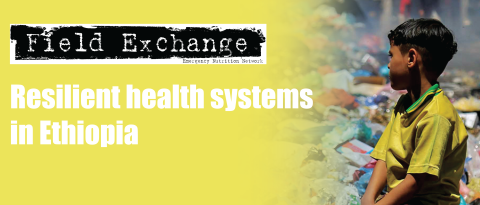Impact of a conditional cash transfer programme on determinants of child health in Colombia
Summary of research1
Location: Colombia
What we know: Conditional cash transfer (CCT) programmes have demonstrated large impacts on child education, health and nutritional outcomes; less is known about their impact on determinants of child health.
What this article adds: A secondary analysis of an evaluation of the Familias en Accion (FA) CCT programme in Columbia was carried out to assess impact on determinants of child health. Children and their families were surveyed in 2002, 2003 and 2005-6 in 31 treatment municipalities (n=1450) and 61 matched control municipalities (n = 1851). FA was associated with a signi?cant increase in the probability of using preventive care services (OR=1·85, 95%, CI 1·03, 3·30) and growth and development check-ups (β=1·36, 95% CI 0·76, 1·95). It also had a positive impact on dietary diversity and food consumption. No effect was observed on maternal employment, women’s empowerment, and knowledge, attitudes and practices with regard to caregiving. Overall, FA’s impact was more marked in rural areas. The study shows that CCT in Colombia increases contact with preventive care services and improves dietary diversity but is less effective in in?uencing mother’s employment decisions, empowerment and knowledge of caregiving practices.
 Conditional cash transfer (CCT) programmes provide cash to low-income families in return for ful?lling speci?c behavioural conditions. Conditions often include mothers fulfilling a schedule of regular primary healthcare visits for pre-school children, such as adherence to vaccination, growth monitoring and attendance to informative sessions, and children regularly attending school. Studies worldwide have demonstrated large impacts of CCT programmes on child education, health and nutritional outcomes directly associated with pre-speci?ed conditions. However, the impact of CCT programmes on multiple well-known determinants of child health has been less well explored or evidence has been mixed or inconsistent. This study examined the impact of a CCT programme in Colombia on use of preventive health services; food consumption and dietary diversity; mother’s knowledge, attitudes and practices in relation to caregiving; maternal employment; and women’s empowerment. The study also examined whether the programme had different effects across rural and urban areas.
Conditional cash transfer (CCT) programmes provide cash to low-income families in return for ful?lling speci?c behavioural conditions. Conditions often include mothers fulfilling a schedule of regular primary healthcare visits for pre-school children, such as adherence to vaccination, growth monitoring and attendance to informative sessions, and children regularly attending school. Studies worldwide have demonstrated large impacts of CCT programmes on child education, health and nutritional outcomes directly associated with pre-speci?ed conditions. However, the impact of CCT programmes on multiple well-known determinants of child health has been less well explored or evidence has been mixed or inconsistent. This study examined the impact of a CCT programme in Colombia on use of preventive health services; food consumption and dietary diversity; mother’s knowledge, attitudes and practices in relation to caregiving; maternal employment; and women’s empowerment. The study also examined whether the programme had different effects across rural and urban areas.
The study was based on a secondary analysis of a quasi-experimental evaluation of Familias en Accion (Families in Action (FA)), the CCT programme in Colombia. FA includes both health and educational components. The health component provides cash to mothers of poor households on the condition that children younger than seven years old regularly attend growth and development check-ups as well as vaccination programmes, and mothers attend educational workshops on nutrition, hygiene and contraception. For the education component, children aged 7–17 years must also regularly attend school for at least 80% of the school year in exchange for cash. All transfers are delivered to the mother in the household.
The evaluation was carried out by the Institute for Fiscal Studies, an independent research institute in London, UK. A detailed survey was conducted in 122 treatment and control municipalities with a baseline assessment in 2002 and follow-up assessments in 2003 and 2005-06. A strati?ed and probabilistic sample of 57 treatment municipalities representative of the 622 eligible municipalities was selected. These municipalities were matched to 65 control municipalities, based on similarities to treatment municipalities in observed characteristics. Children under seven years of age in treatment (n=2394) and control (n=3197) groups were randomly selected to take part in household surveys. A ?rst follow-up assessment was carried out in 2003 and included 2010 treated children and 2606 control children who had previously been measured in 2002. A second follow-up assessment was carried out between 2005 and 2006 and included 1,450 and 1,851 children in both control and treatment areas who were evaluated in 2002 and 2003. These were considered as the ?nal sample for the analysis. In each round, questions were asked of mothers within households about attendance at health services and workshops, child’s consumption of certain foods, employment, how decisions are made in the household with regard to child health and mother’s knowledge, and attitudes and practices with regard to caregiving. Dietary diversity was assessed by creating a simple dietary diversity score (DDS) using consumption data. Data on municipal services supply were also collected based on a survey among health centres and schools. A difference-in-differences approach was applied to the data using logistic or linear regression, separately examining effects for urban and rural areas.
Results show that the FA programme was associated with an increase in use of healthcare preventive services (OR=1·85, 95% CI 1·03, 3·30); this association was particularly marked in rural areas (OR=2·63, 95% CI 1·31, 5·27). The FA programme increased attendance at the growth and development check-ups (OR=5·09, 95% CI 2·88, 8·99) as well as the frequency of these check-ups (β=1·36, 95% CI 0·76, 1·95) in both rural and urban areas. Likewise, the programme was associated with a higher mother’s attendance at educational workshops on diarrhoea (OR=2·36, 95% CI 1·42, 3·92), prenatal care (OR=2·92, 95% CI 1·74, 4·89) and acute respiratory infections (OR=2·57, 95% CI 1·44, 4·60) in rural and urban areas. There was no effect on attendance at nutrition workshops. In rural areas, children in treatment municipalities had larger increases in the consumption of meat, eggs and dairy products than children in control municipalities and had increased dietary diversity (OR=2·13, 95% CI 1·25, 3·65). In urban areas, children in treatment municipalities experienced larger increases in the consumption of ?sh, eggs and vegetables than children in control municipalities; however no differences were found in the dietary diversity between control and treatment groups (OR=1·42, 95% CI 0·85, 2·37). There was no evidence that the programme had any positive impacts on women’s perceived decision-making power within the household on issues related to child nutrition and care. If anything, in rural areas the programme was associated with a decline in mother’s involvement in decisions (OR=0·90, 95% CI 0·83, 0·98). There was no evidence of an impact of the programme on labour-force participation or working hours.
The present study suggests that the FA programme increased the use of preventive healthcare services, growth and development check-ups and mothers’ participation in educational workshops, particularly in rural areas. The programme increased children’s food consumption in both rural and urban areas, as well as dietary diversity among children in rural areas. This suggests that CCT programmes may be ef?cient in improving child nutrition through growth and development check-ups as well as increasing access to preventive health services. However, the programme had no effects on other important determinants of child health such as women’s empowerment, knowledge, attitudes and practices and women’s employment rates. These ?ndings cast some doubt on the notion that CCT programmes have ‘spillover’ effects on broader determinants of child health not directly associated with programme conditionalities. The authors conclude that there is a need to develop CCT or other programmes that not only in?uence behaviours directly associated with pre-speci?ed conditions, but also motivate households to invest further in other important determinants of child health and wellbeing.
Footnotes
1Lopez-Arana S, Avendano M, van Lenthel FJ and Burdorf A. (2016). The impact of a conditional cash transfer programme on determinants of child health: evidence from Colombia. Public Health Nutrition: 19(14), 2629–2642 doi:10.1017/S1368980016000240


